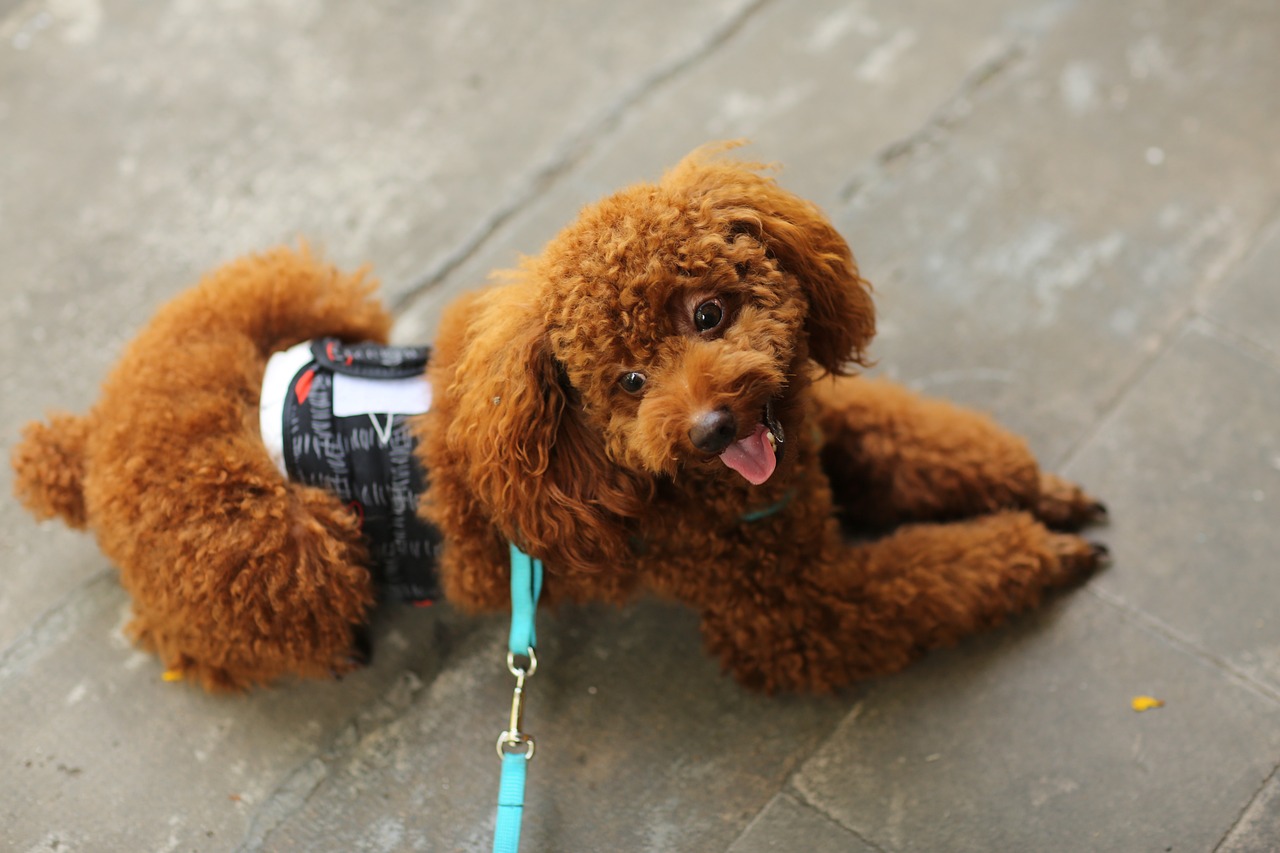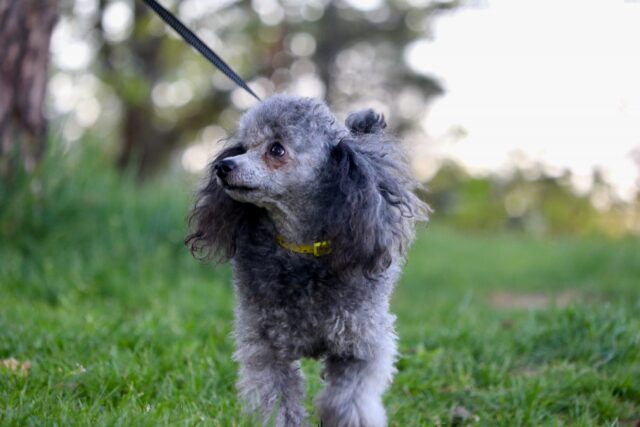Toy Poodle
No products found which match your selection.
Shelter Dog Meal Donation Count:
No products found which match your selection.
Toy Poodles are compact, intelligent, and affectionate companions that adapt well to various living situations, making them ideal for many types of owners. Their small size and manageable exercise needs combined with their affectionate nature and trainability make them a popular choice for those seeking a small, active, and engaging pet.
Toy Poodles are not only visually striking but also among the most trainable breeds. Their keen intelligence, coupled with their affectionate nature, makes them excellent companions for various households.

Originally bred in Germany for retrieving waterfowl, Poodles were later standardized in France. The Toy Poodle was developed to be a companion dog, enjoying popularity among French nobility and eventually gaining widespread admiration across the globe.




Common Health Issues: Includes hip dysplasia, eye disorders, and ear infections. Veterinary Check-Ups: Regular check-ups are crucial to monitor and maintain their health.
Coat Care: Requires regular brushing to prevent matting. Professional grooming is recommended every 4-6 weeks. Nail Care: Regular nail trimming is necessary to prevent discomfort and health issues.
Activity Needs: Daily walks and play sessions to keep them mentally and physically stimulated. Exercise Tips: Interactive games and obedience training can provide both physical exercise and mental stimulation.
Trainability: Highly trainable and eager to please. Training Tips: Positive reinforcement methods work best. Consistency and patience are key.
Diet: High-quality dog food appropriate for their age, size, and activity level. Feeding Schedule: Consistent feeding schedule with controlled portions to avoid overfeeding.
The Toy Poodle is a wonderful breed, perfect for those seeking a small, intelligent, and affectionate companion. Their adaptability makes them suitable for various lifestyles, from city apartments to large homes. With proper care, exercise, and love, your Toy Poodle will be a joyful and loyal member of your family for many years.
Toy Poodles, like all breeds, are prone to certain health conditions. Being aware of these common issues helps in early detection and effective management.
While Toy Poodles are generally a healthy breed, being vigilant about these health issues and conducting regular veterinary checks can greatly contribute to their overall well-being and longevity. It's also important to maintain a healthy lifestyle with proper nutrition, exercise, and grooming to minimize the risk of these conditions.
The iHeartDogs Free Rx Discount Card Program is a pet prescription discount card that can help you save money on your furry friend’s medications. The card is free to sign up for, and you can use it at participating pharmacies nationwide. To use the free program, simply show the card to your pharmacist when you pick up your pet’s prescription. The pharmacist will then scan the card, and you will receive a discount on the price of the medication.LEARN MORE
Caring for a Toy Poodle involves various expenses, and the annual cost can vary depending on several factors such as location, the dog’s health, and the level of care you choose to provide. Here’s a breakdown of the primary expenses involved in caring for a Toy Poodle:
Total Estimated Annual Cost:
$3150 - $7400
It's important to note that these figures are estimates and can vary. Also, the first year of owning a dog can be more expensive due to one-time costs like spaying/neutering, initial vaccinations, and training. Regular budgeting for your dog's needs and an emergency fund for unforeseen costs are essential for responsible pet ownership.
We rely on ads to keep creating quality content for you to enjoy for free.
Please support our site by disabling your ad blocker.
Continue without supporting us
If the prompt is still appearing, please disable any tools or services you are using that block internet ads (e.g. DNS Servers).